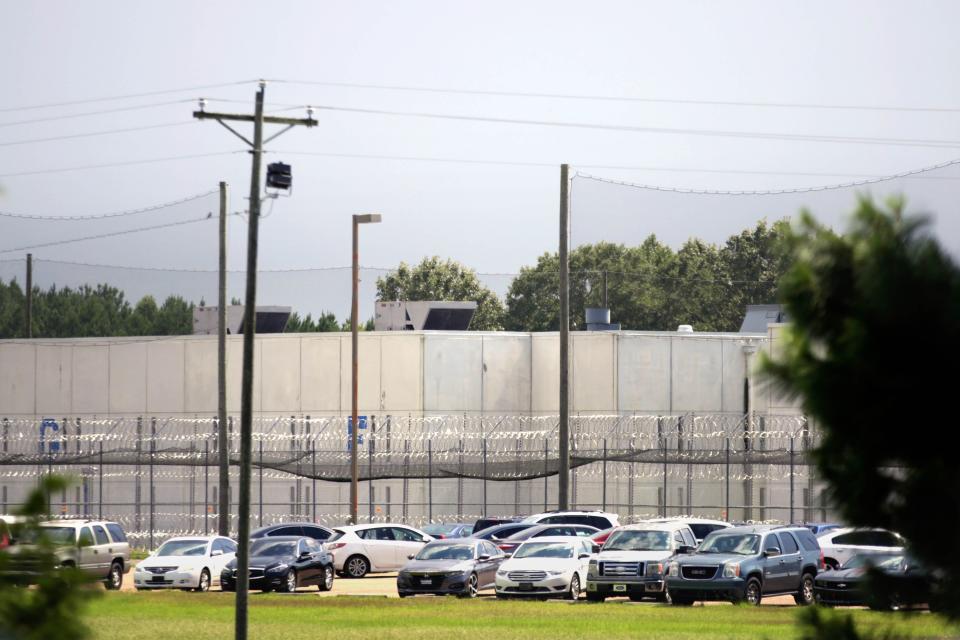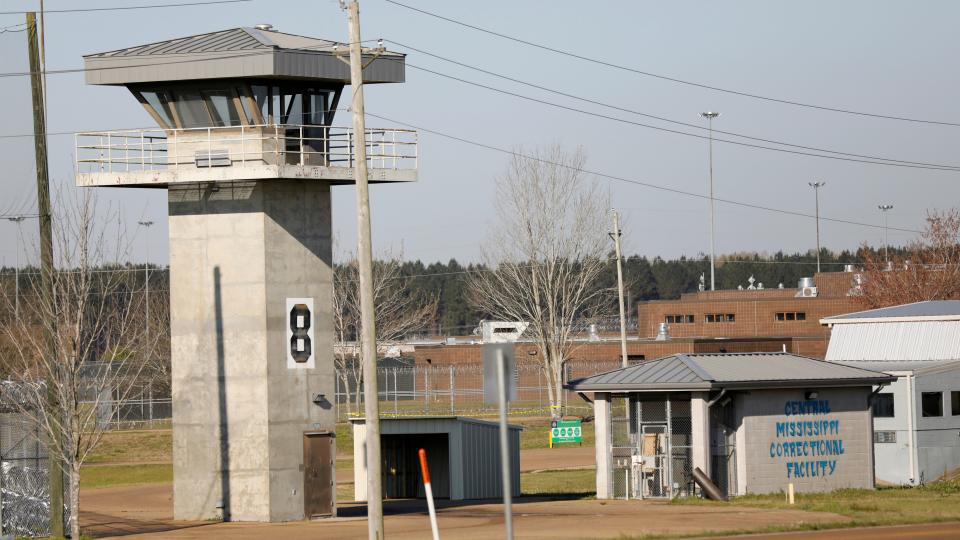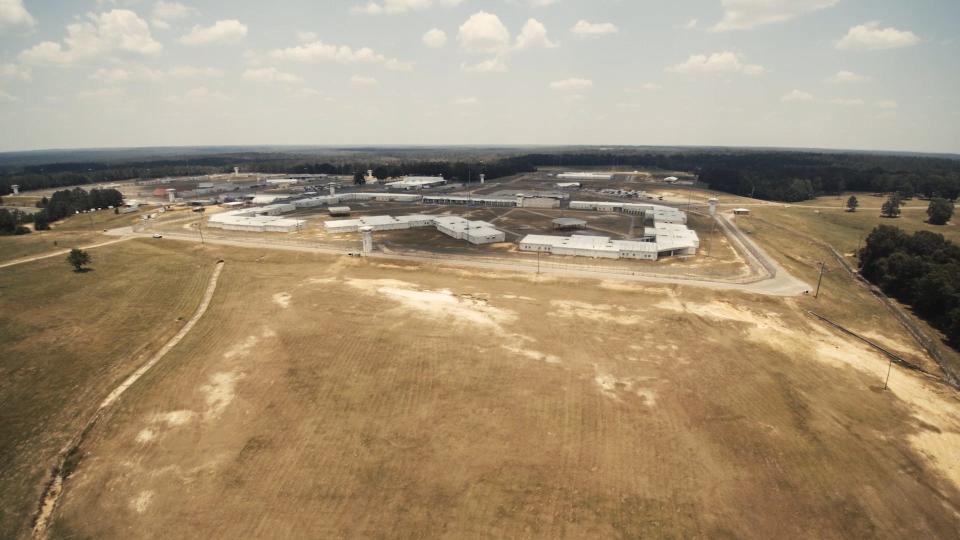3 Mississippi prisons violate civil rights with violent, unacceptable conditions, the DOJ says
Mississippi prison officials are not doing enough to protect incarcerated people in their care, federal investigators said, and living conditions are unsanitary and unsafe.
The U.S. Department of Justice on Wednesday released its report on an investigation into three Mississippi prisons.
During a news conference to announce the report, Assistant Attorney General Kristen Clarke, who oversees the DOJ's civil rights division, said about 7,200 people are housed in the Central Mississippi and Wilkinson County correctional facilities and South Mississippi Correctional Institution.
The state has failed to protect its incarcerated people, Clarke said, leading to alleged civil rights violations, particularly of the Fourteenth Amendment, which guarantees equal protection under the law and the Eighth Amendment, which protects citizens against cruel and unusual punishment.
"Our investigation uncovered chronic, systemic deficiencies that create and perpetuate violence and unsafe environments for people incarcerated at these three facilities," she said.

Clarke said the prisons fail to protect incarcerated people from violence. The report finds the prisons offered inadequate supervision and understaffing of guards, uncontrolled flow of contraband, deficient investigations of incidents in which prisoners were seriously harmed and failure to fix poor living conditions.
Those deficiencies have led to rampant violence in the prisons. Shortage of prison staff also has led to gangs taking over control of the prisons, Clarke said.
Other violations include the overuse of restrictive housing at Wilkinson and CMCF, "which exposes people to serious harm," she said. Violence, including sexual assault, and self-harm are prolific.
The conditions at the three prisons are unacceptable, Clarke added.
"People do not surrender their constitutional rights at the jailhouse door," she said.
Click here to read the full report.

The report follows the 2022 findings of the Department of Justice's investigation into the Mississippi State Penitentiary at Parchman. Prisoners were living under similar intolerable conditions, in which the DOJ said MDOC officials knew of the problems yet acted with "deliberate indifference."
The investigations began in 2020, after riots broke out in January and the state saw a record number of deaths of people in custody that year either by violence, suicide or alleged natural causes.
Burl Cain was appointed MDOC director in 2020 and immediately began implementing a plan to correct many of the issues cited in the DOJ report on Parchman, including significant pay increases to recruit and retain prison guards. MDOC officials and state leaders are again working with the Department of Justice on the latest findings.
"Today the Mississippi Department of Corrections received the report of the DOJ's four-year review of two state facilities and one private facility," MDOC spokesperson Kate Head said in an email. "The report focuses on two areas: inmate-on-inmate violence and the use of restrictive housing.
"At the core is MDOC's continuing efforts to increase correctional officer staffing — an issue faced by prisons across the country. Over the past four years, MDOC has worked tirelessly to increase staff through additional compensation, the development of career ladders, streamlining the hiring process, job fairs, and implementing special duty pay.
"We're grateful for the often thankless work of the men and women of MDOC, and we look forward to continuing our efforts to recruit additional staff. While we disagree with the findings, we will work with the DOJ to identify possible resolutions to enhance inmate safety and continue ongoing efforts to improve operations at MDOC."

Department of Justice officials also noted that Mississippi has a disproportionate number of Black people incarcerated. Mississippi's prisons are 61% Black, while the statewide population of Black people is 37%.
"This is a racial justice issue," Clarke said.
Clay Joyner, U.S. Attorney for Mississippi's Northern District and Todd Gee, the Southern District U.S. Attorney joined Clarke in voicing their support for reform in Mississippi's prisons and in some instances are urging the state to work with the federal government to implement change.
"The report we are releasing today demonstrates that the MDOC has failed to provide inmates in three prisons the basic constitutional right of a safe environment in which to pay their debt to society," Gee said. "In particular, the gang violence and domination we discovered during our investigation is unacceptable. It should be corrections officers running prisons, not gangs."
The Department of Justice said it is pursuing similar measures in other states throughout the Southeast, including Alabama, Georgia, Texas, Louisiana and South Carolina.
For instance, in Louisiana, the DOJ found that more than a quarter of the prisoners released were held beyond their release date, in violation of the Fourteenth Amendment. Emma Holmes, a former prisoner in Mississippi's prison system, has made similar allegations against MDOC.
"It's like her civil liberties don't count," Greenville attorney George "Boo" Hollowell said in an earlier story.
Civil rights: Emma Holmes served her full time in a Mississippi prison, and 8 additional months. See why
Do you have a story to share? Contact Lici Beveridge at lbeveridge@gannett.com. Follow her on X @licibev or Facebook at facebook.com/licibeveridge.
This article originally appeared on Hattiesburg American: Prison conditions in Mississippi are unacceptable, the DOJ reports

